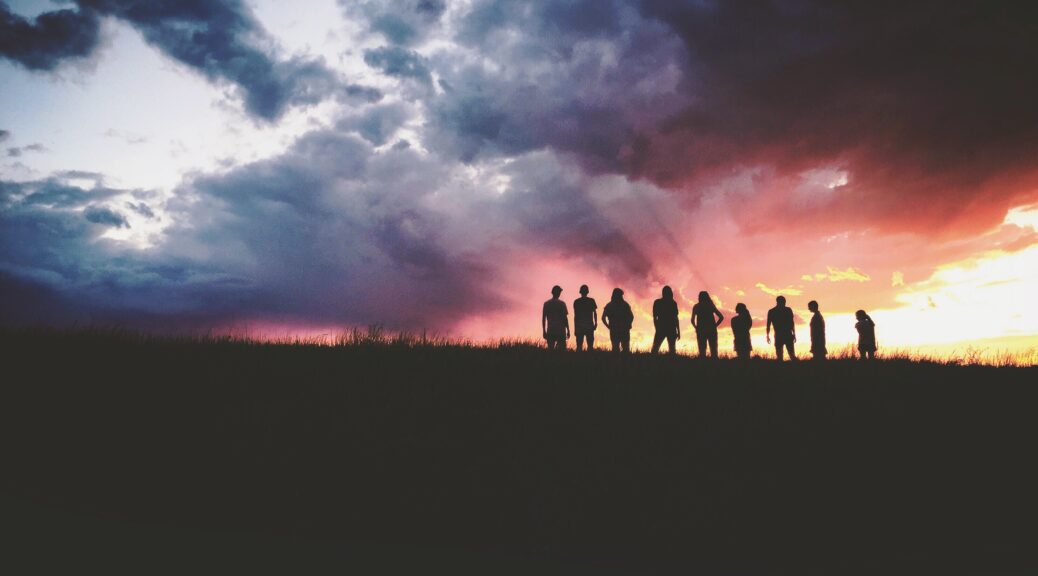
I Will Sing to the Lord
Many years ago, I was going through a particularly tough time. The details are too involved to go into here, but it was not good, and I was feeling bad. (Don’t you just love British understatement?)
A friend told me about Psalm 13. It starts like this:
How long, O LORD? Will you forget me forever? How long will you hide your face from me? How long must I take counsel in my soul and have sorrow in my heart all the day?
I felt I could identify with that – it seemed to sum up how I was feeling. But my friend pointed out that the Psalm finished on a different tone:
But I have trusted in your steadfast love; my heart shall rejoice in your salvation. I will sing to the LORD, because he has dealt bountifully with me.
In particular, the last verse – ‘I will sing to the Lord’ – which is a resolve rather than an aspiration. Essentially saying that despite the circumstances and how I might be feeling, it’s still possible to have faith, because we can trust in the object of our faith, not in the fact that we have faith. And the object of our faith is of course God himself, and we trust in his unchangeable nature – his steadfast love. So we sing. We decide that we will sing – and we sing.
The result is that our focus is turned away from ourselves and onto God and what he has done. The act of singing (yes, I had to find somewhere where no-one could hear me!) influences our emotions, simply because that’s what music does, and our minds as we sing facts about God.
I can’t say this is a magic formula that made all my problems go away. But it did help put things in perspective and was a valuable lesson enabling me to move on, knowing God is with me even in those dark valleys.
But singing about God and what he has done is not just reserved for the tough times. Paul writes (in Eph 5:19 and Col 3:16) that singing is a regular part of our Christian lives.
You may have noticed from previous posts that I’m going through the story of Moses in my daily studies. We’ve got to the point in the story where the whole nation of Israel has just gone through the Red Sea, and the whole Egyptian army has just drowned in that same sea.
It’s a phenomenal event which echoes right through redemptive history. After witnessing the 10 plagues of Egypt, the establishment of the Passover, and simply walking out of Egypt with the Egyptians showering them with gifts, the people of Israel then end up with the sea in front of them and an army of chariots, intent on destroying them, behind them. These people comprised men, women and children together with all their possessions including flocks of animals. They had no experience of fighting and were in a weak and potentially hopeless situation. That’s where God did what he said he would do and led them to safety in a remarkable manner. The enemy was destroyed.
I wonder what you or I would do immediately after something like that? Well Moses and the people sang. The first words of his song were:
I will sing to the Lord
The song recounts how God has saved his people, but it is written in the first person showing how our faith is personal and in the context of community. Interestingly, when God first meets with Moses, he calls himself the God of Abraham, Isaac and Jacob. Here though, Moses says ‘This is my God … my father’s God’. He says how God has ‘become my salvation’.
The whole song brings glory to God as the one who alone has brought about their salvation. Having such a song would have helped the people remember what God has done and helped them from going back to slavery when things got hard.
In the same way I think we need to do exactly the same. Our weekly worship songs that we sing together remind us of what God has done for us in Christ and help us continue in repentance and obedience.
Moses’ song goes on to say how ‘The Lord is a man of war’. He fought for his people and defeated their enemy. That’s also good to remember. Our enemy is not flesh and blood in the same way but is just as real in the threefold attack from the world, the flesh and the devil. We are called to arm ourselves with weapons such as prayer and the Word – but ultimately it is God who fights for us. See Exodus 14:14.
By the way – it might be worth getting to grips with Moses’ song as we’ll all be singing it one day Rev 15:3.
Obviously, we don’t know what the tune will be, but it is clearly guitar-based (Rev 15:2 lyre=guitar), and I feel certain it will have a prog rock feel…
